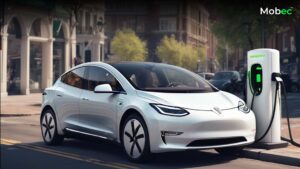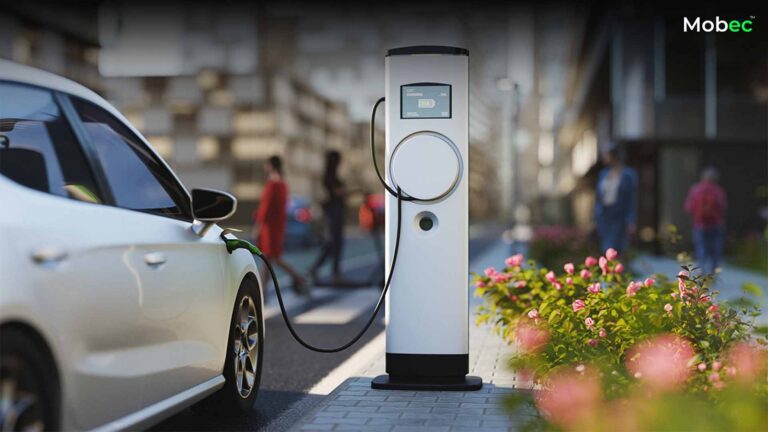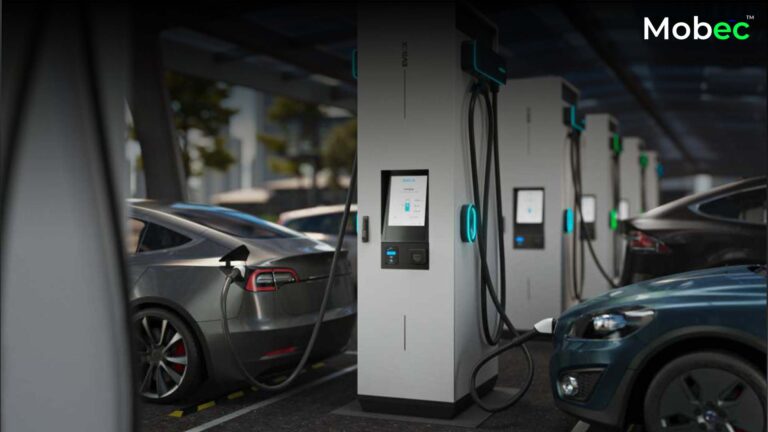The rapid advancement of electric vehicle (EV) technology has led to the development of a diverse range of vehicle electric charging stations tailored to meet the specific charging requirements of various electric vehicle models. These charging stations play a critical role in supporting the widespread adoption of electric vehicles and promoting sustainable transportation practices. Understanding the different types of vehicle electric charging stations available for various electric vehicles is essential for both EV owners and charging infrastructure providers. This comprehensive exploration delves into the distinct types of charging stations designed for different electric vehicle models, highlighting their features, benefits, and compatibility with various charging standards. By exploring the nuances of these charging stations, we can better appreciate their role in facilitating the growth and accessibility of electric vehicles within the global transportation landscape.
Public Charging Stations: Promoting Accessibility and Long-Distance Travel

Public charging stations are strategically located along highways, in urban centers, and at key transportation hubs, providing electric vehicle owners with accessible and reliable charging services that support long-distance travel and promote the widespread adoption of electric vehicles. Public charging stations come in various forms, including Level 2 charging stations, DC fast charging stations, and ultra-rapid charging stations, each catering to the specific charging needs and preferences of electric vehicle owners. The deployment of public charging stations promotes the accessibility and visibility of electric vehicle charging infrastructure, encouraging consumers to embrace electric vehicles as practical and sustainable alternatives to traditional combustion engine vehicles.
The key features and benefits of public charging stations include:
- Accessible Charging Infrastructure: Public charging stations provide accessible charging infrastructure that supports long-distance travel and urban accessibility for electric vehicle owners and travelers. The deployment of public charging stations along highways and in urban centers encourages the adoption of electric vehicles by providing convenient and reliable charging services that promote the feasibility and accessibility of electric vehicle ownership within local communities and global markets.
- Fast and Efficient Charging Solutions: Many public charging stations are equipped with fast-charging solutions that enable electric vehicle owners to recharge their vehicles quickly and efficiently, minimizing charging time and promoting the convenience of electric vehicle ownership. The deployment of fast and efficient charging solutions within the public charging infrastructure network fosters a culture of accessibility and energy efficiency that supports the widespread adoption of electric vehicles and promotes the benefits of sustainable transportation practices within local communities and global markets.
- Compatibility with Various Electric Vehicle Models: Public charging stations are designed to be compatible with various electric vehicle models, supporting the diverse charging requirements and standards of different electric vehicle manufacturers. The compatibility of public charging stations with various electric vehicle models promotes the accessibility and flexibility of charging infrastructure services, encouraging consumers to embrace electric vehicles as practical and sustainable alternatives to traditional combustion engine vehicles.
By promoting the accessibility and visibility of electric vehicle charging infrastructure, public charging stations play a crucial role in supporting the widespread adoption of electric vehicles and encouraging consumers to embrace sustainable transportation practices that prioritize energy efficiency, environmental conservation, and responsible transportation choices.
Residential Charging Stations: Prioritizing Home Charging Convenience and Personalized Charging Management

Residential charging stations are essential components of home charging solutions that prioritize home charging convenience and personalized charging management for electric vehicle owners. Residential charging stations are installed in residential garages, driveways, and parking spaces, catering to the specific charging needs and preferences of homeowners and renters who own electric vehicles. The integration of residential charging stations into home charging solutions promotes the accessibility and feasibility of electric vehicle ownership within residential neighborhoods, encouraging consumers to embrace sustainable transportation practices and prioritize the convenience of home charging solutions for their electric vehicles.
The key features and benefits of residential charging stations include:
- Home Charging Convenience: Residential charging stations provide homeowners and renters with the convenience of charging their electric vehicles at home, eliminating the need to rely solely on public charging infrastructure for their charging needs. The integration of residential charging stations into home charging solutions promotes the accessibility and feasibility of electric vehicle ownership within residential neighborhoods, supporting the adoption of electric vehicles as practical and sustainable transportation alternatives for homeowners and renters.
- Personalized Charging Management: Many residential charging stations are equipped with personalized charging management systems that enable homeowners and renters to monitor, control, and optimize their charging preferences and energy consumption. The integration of personalized charging management systems into residential charging stations fosters a culture of energy efficiency and responsible charging practices that support the adoption of electric vehicles and promote the benefits of sustainable transportation within residential communities.
- Compatibility with Home Energy Systems: Residential charging stations are designed to be compatible with home energy systems, including solar power systems, battery storage solutions, and smart home integration platforms, that optimize energy consumption and promote the utilization of renewable energy sources for charging electric vehicles. The compatibility of residential charging stations with home energy systems reinforces the commitment to environmental stewardship and sustainable energy practices, encouraging homeowners and renters to embrace clean energy transportation solutions that prioritize energy efficiency and environmental conservation within residential communities.
By prioritizing home charging convenience and personalized charging management, residential charging stations empower homeowners and renters to embrace sustainable transportation practices and prioritize the feasibility of electric vehicle ownership within their residential neighborhoods.
Workplace Charging Stations: Encouraging Sustainable Commuting Practices and Corporate Sustainability Initiatives

Workplace charging stations are integral components of workplace charging solutions that encourage sustainable commuting practices and corporate sustainability initiatives within the corporate environment. Workplace charging stations are installed in corporate campuses, office complexes, and business districts, catering to the specific charging needs and preferences of employees and visitors who own electric vehicles. The integration of workplace charging stations into corporate sustainability initiatives promotes the adoption of electric vehicles and supports the growth of the electric vehicle market within the corporate environment, fostering a culture of environmental consciousness and sustainable mobility practices among employees and corporate stakeholders.
The key features and benefits of workplace charging stations include:
- Sustainable Commuting Practices: Workplace charging stations promote sustainable commuting practices and encourage employees to embrace eco-friendly transportation alternatives, such as electric vehicles, carpooling, and public transit, that prioritize energy efficiency and environmental conservation. The integration of workplace charging stations into corporate campuses and office complexes fosters a culture of sustainable mobility and environmental responsibility that supports the adoption of clean energy transportation solutions and promotes the benefits of sustainable commuting practices within the corporate environment.
- Corporate Sustainability Initiatives: Many workplace charging solutions are implemented as part of corporate sustainability initiatives that emphasize the importance of environmental conservation, energy efficiency, and responsible transportation practices within the corporate environment. The integration of workplace charging stations into corporate sustainability initiatives demonstrates a commitment to reducing carbon emissions, mitigating air pollution, and supporting the global efforts to combat climate change, positioning businesses and organizations as advocates for sustainable mobility and environmental stewardship within their respective industries.
- Integration with Green Building Standards: Workplace charging solutions are often integrated with green building standards and sustainable construction guidelines that prioritize the implementation of energy-efficient technologies, renewable energy sources, and eco-friendly infrastructure solutions within the workplace environment. The integration of workplace charging stations into green building initiatives reinforces the commitment to sustainable development and environmental responsibility, promoting the adoption of clean energy transportation solutions and supporting the creation of eco-conscious workplaces that prioritize the well-being of employees and the preservation of natural resources.
The implementation of workplace charging solutions fosters a collaborative and environmentally conscious work environment that encourages employees and organizations to embrace sustainable transportation practices, prioritize energy efficiency, and contribute to the advancement of a cleaner, greener, and more sustainable transportation ecosystem.
Residential Charging Stations: Promoting Inclusive Community Development and Sustainable Urban Living
Residential charging stations are essential components of inclusive community development and sustainable urban living, providing residents with accessible and convenient charging options that support the adoption of electric vehicles within residential neighborhoods and promote the benefits of clean energy transportation solutions. Residential charging stations are installed in multi-unit housing complexes, apartment buildings, and residential communities, catering to the specific charging needs and preferences of residents and property owners who own electric vehicles. The integration of residential charging stations into inclusive community development projects promotes the accessibility and visibility of charging infrastructure within residential neighborhoods, encouraging residents to embrace sustainable transportation practices and prioritize the feasibility of electric vehicle ownership within their communities.
The key features and benefits of residential charging stations within inclusive community development projects include:
- Community Accessibility and Integration: Residential charging stations promote community accessibility and integration by providing residents with accessible and convenient charging options that support the adoption of electric vehicles within residential neighborhoods and promote the benefits of clean energy transportation solutions. The integration of residential charging stations into inclusive community development projects fosters a culture of environmental consciousness and sustainable living that prioritizes the well-being of residents and supports the development of inclusive and accessible communities that embrace clean energy transportation alternatives.
- Sustainable Urban Living Solutions: Many residential charging solutions are implemented as part of sustainable urban living initiatives that emphasize the importance of energy efficiency, environmental conservation, and responsible transportation practices within urban residential communities. The integration of residential charging stations into sustainable urban living projects promotes the adoption of electric vehicles as practical and sustainable transportation alternatives for urban residents, supporting the growth of the electric vehicle market within urban centers and encouraging residents to prioritize the feasibility of electric vehicle ownership within their residential communities.
- Integration with Community Infrastructure: Residential charging solutions are often integrated with community infrastructure projects, including public transportation networks, pedestrian-friendly pathways, and green space development initiatives, that prioritize sustainable urban living and support the well-being of residents within urban residential communities. The integration of residential charging stations into community infrastructure projects promotes the accessibility and visibility of charging infrastructure within urban residential communities, fostering a culture of environmental consciousness and sustainable mobility that supports the growth of the electric vehicle market and promotes the benefits of clean energy transportation within local communities and global markets.
By promoting inclusive community development and sustainable urban living, residential charging stations encourage residents and property owners to embrace clean energy transportation solutions and prioritize the accessibility and feasibility of electric vehicle ownership within their residential neighborhoods.
Conclusion
Exploring the different types of charging stations for various electric vehicles underscores the importance of understanding the diverse charging needs and preferences of electric vehicle owners within local communities and global markets. By examining the distinct features, benefits, and compatibility of public charging stations, residential charging stations, workplace charging stations, and residential charging stations within inclusive community development projects, stakeholders within the electric vehicle industry can develop comprehensive charging infrastructure networks that support the growth of the electric vehicle market and promote the adoption of sustainable transportation practices within local communities and global markets. As we look ahead to the future of the electric vehicle industry and the ongoing development of charging infrastructure networks, we are presented with an opportunity to embrace a more sustainable and energy-efficient transportation ecosystem that is capable of meeting the diverse needs of a rapidly changing world and promoting the well-being of both present and future generations.
Frequently Asked Questions (FAQs)
What are the key features and benefits of public charging stations?
Public charging stations offer accessible infrastructure, fast and efficient charging solutions, and compatibility with various electric vehicle models, promoting widespread adoption and supporting long-distance travel.
How do residential charging stations prioritize home charging convenience?
Residential charging stations provide the convenience of charging electric vehicles at home, eliminating reliance on public infrastructure, and often include personalized charging management systems.
What is the role of workplace charging stations in corporate sustainability initiatives?
Workplace charging stations encourage sustainable commuting, align with corporate sustainability goals, and are often integrated with green building standards, fostering eco-friendly work environments.
How do residential charging stations contribute to inclusive community development?
Residential charging stations promote community accessibility, sustainable urban living, and integration with community infrastructure, encouraging residents to embrace clean energy transportation.
What is the overall goal of exploring different types of charging stations for electric vehicles?
Exploring charging stations aims to understand diverse charging needs, support the growth of the electric vehicle market, and promote sustainable transportation practices globally.






















+ There are no comments
Add yours